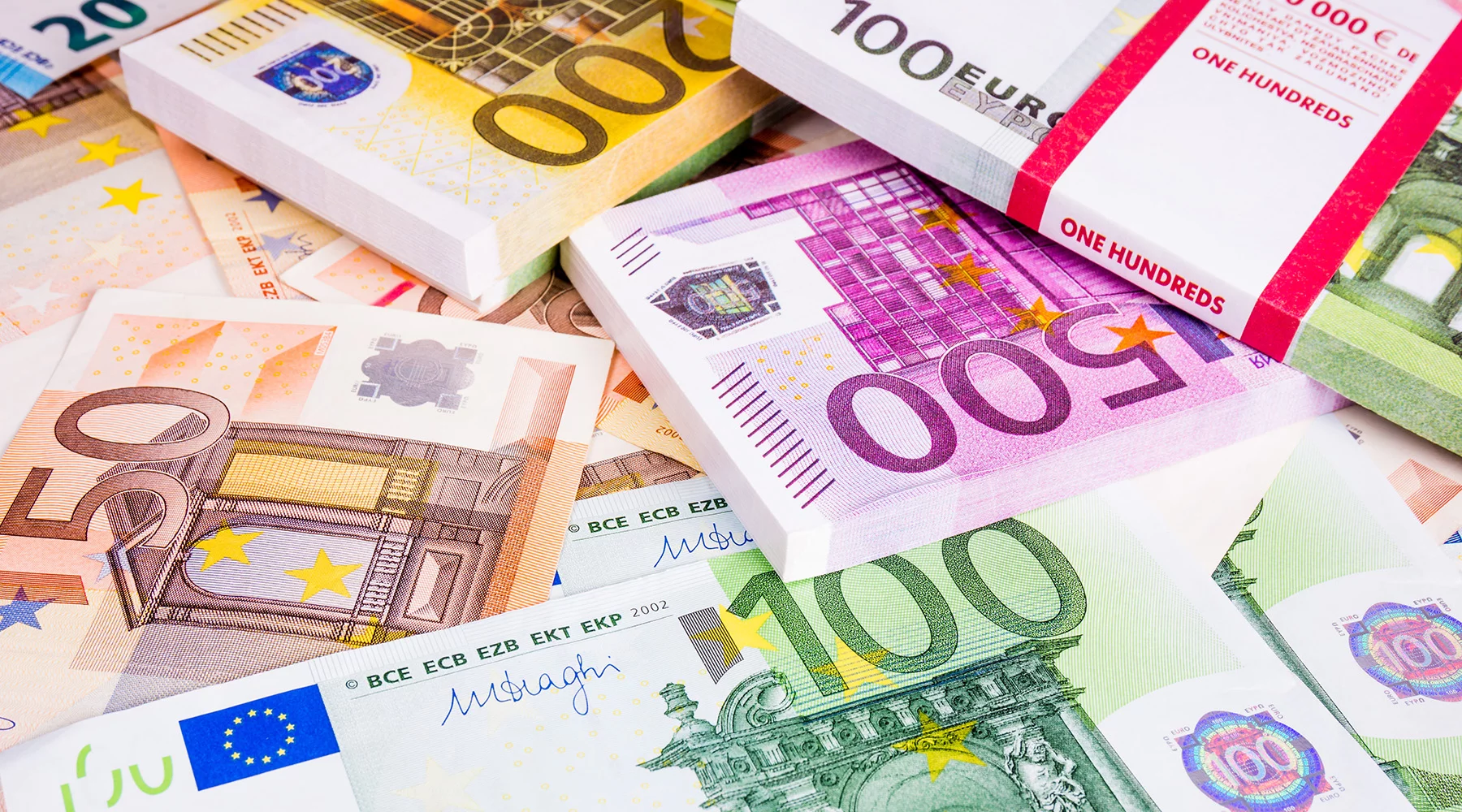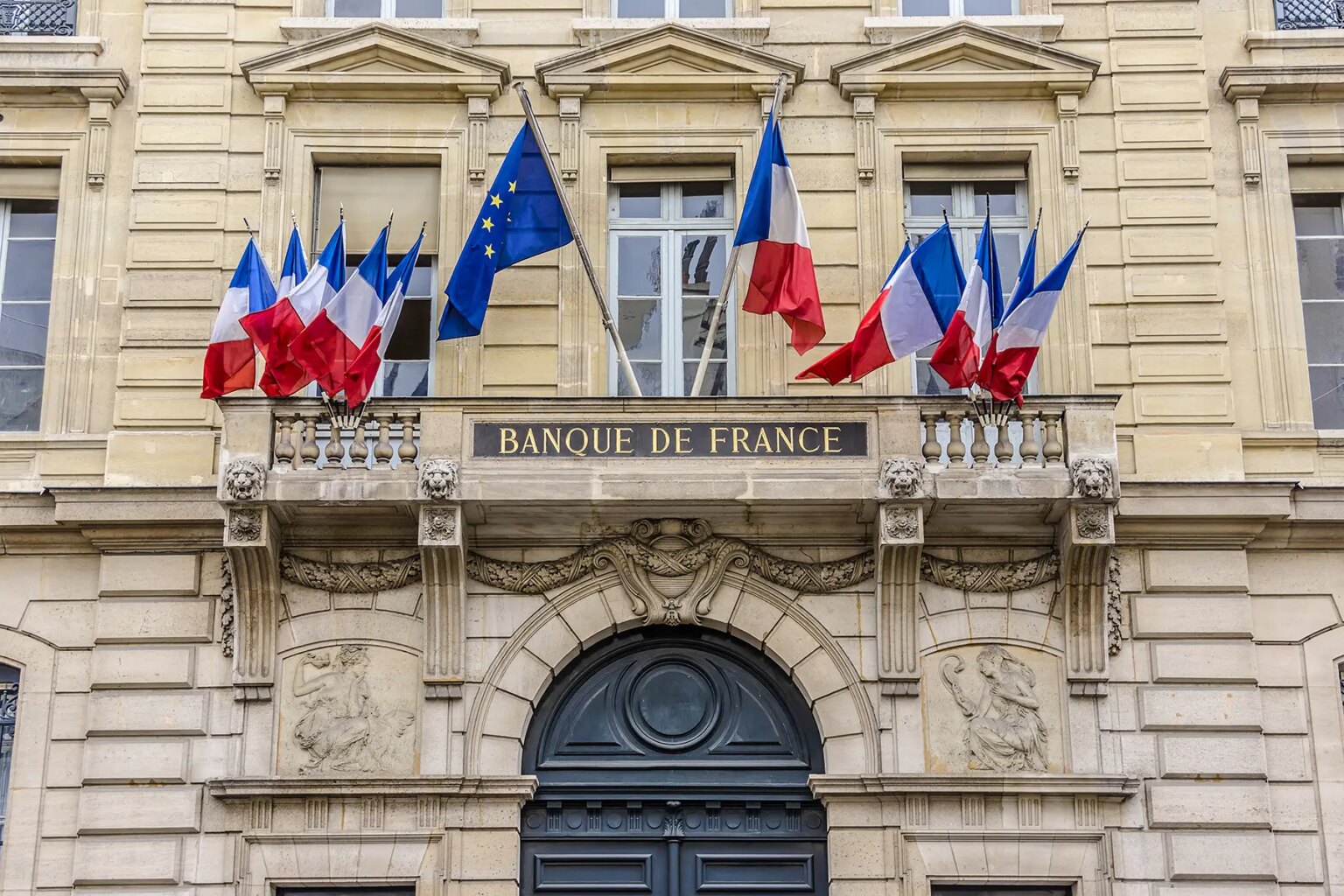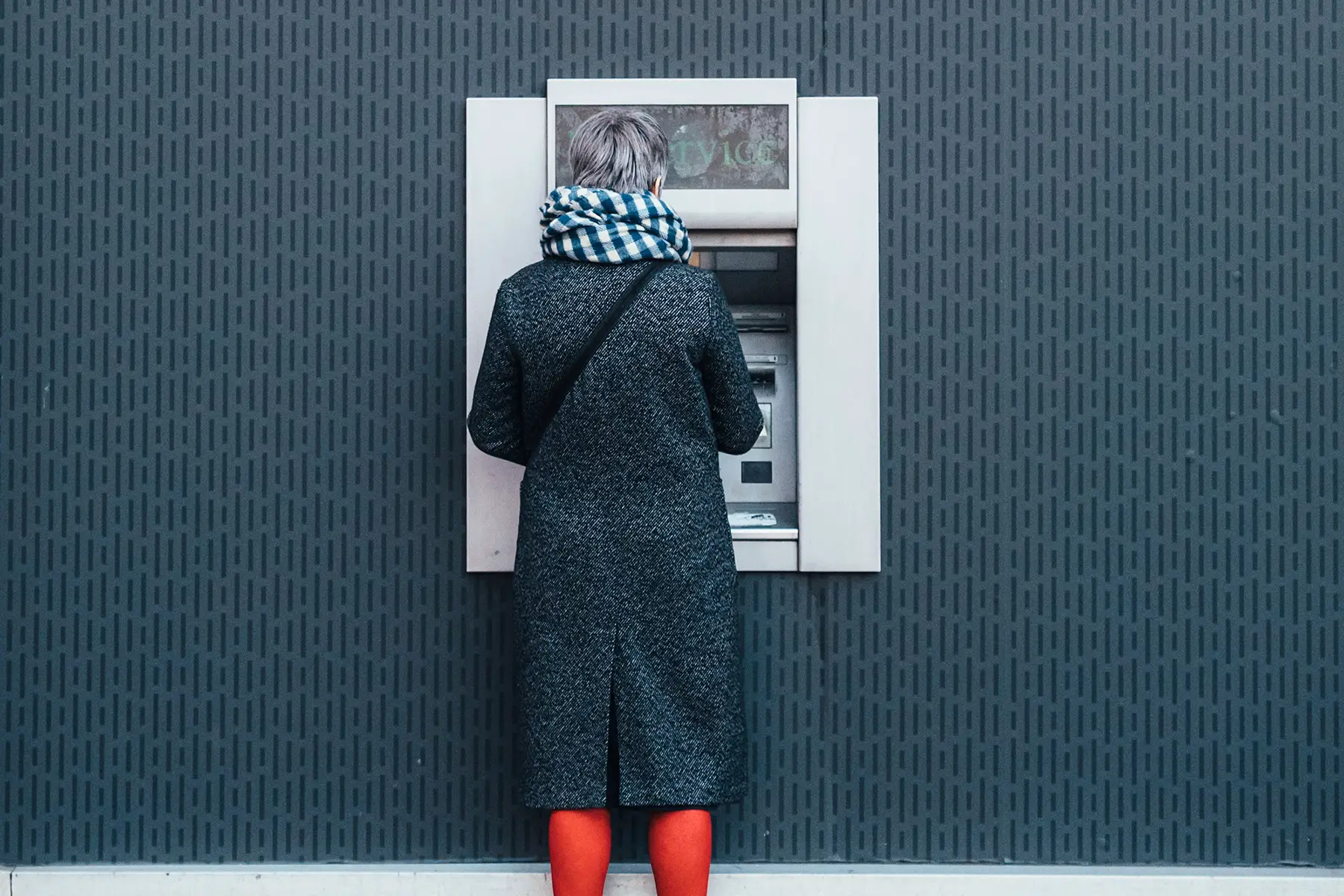France has a highly developed banking system and boasts some of the most reputable banks in the world. Banks in France offer a wide range of services, including French mortgages and a variety of different borrowing options, plus there are special bank accounts in France tailored to meet the needs of expats and non-residents.
This helpful guide to banking in France explains the country’s banking system for foreigners and includes the following sections:
- The banking system in France
- Currency in France
- Banks in France
- Banking services in France
- Opening a French bank account
- Payment methods in France
- Banking fees in France
- Offshore banking in France
- Banking security and fraud in France
- Making a complaint about French banks
- Alternatives to using banks in France
- Useful resources
N26
N26 is the bank you'll love to use: open your bank account in just eight minutes without paperwork. Take control of your finances with one app where you can manage limits, set PIN, lock/unlock cards, and make no-fee transactions anywhere in the world
The banking system in France
The French banking system is more regionalized than in some other parts of Europe. There are a few big name banks, however they are not as dominant as the UK’s ‘big four’ high street ones. As well as national high street banks and local financial institutions, you can also find French branches of international banks, internet banks, and mobile banks in France.
In addition to 266 banks currently operating in France, there are over 300 other credit institutions including mutual banks and municipal credit banks. Despite the fact that digital banking is on the rise, physical banking in France remains popular and there are still just over 37 bank branches per 100,000 of the population (down from 46 per 100,000 in 2006).
The country’s central bank is the Banque de France which also regulates the French banking sector through the French Prudential Supervision and Resolution Authority (Autorité de contrôle prudentiel et de résolution – ACPR).
Currency in France
France is a Eurozone country and uses the euro (€), which replaced the franc as the national currency. The currency exchange rate of the euro (July 2019) is currently 1.11 against the GBP (£) and 0.89 against the USD ($). There are eight different euro coins in use (1, 2, 5, 10, 20, and 50 cents, plus 1 and 2 Euros). There are also seven different notes (5, 10, 20, 50, 100, 200, and 500). Notes above 100 euros are not commonly accepted in high street stores.

Cash machines and ATMs in France
ATMs are widely available in France, usually outside banks, on high streets, and at airports. If you have a major card such as Visa or Mastercard, you won’t struggle to find a machine. Availability, however, is more scarce in rural areas. Foreign bank cards are accepted and most machines don’t have a daily withdrawal limit, but your own bank may impose one of its own. You can find your nearest ATM locator for Visa, Mastercard, and American Express.
Banks in France
National retail banks
There are several high-street retail banks in France that have branches across the country. Services and fees tend to vary from region to region. The bigger banks in major cities are more tailored towards international clients and may have English-speaking staff. Banks normally open around 08:30-09:00 and close around 17:00-17:30, often shutting for an hour for lunch. Many banks open on Saturday until around 12:00-13:00.
The biggest and most well-known national French banks include:
- La Banque Postale
- BNP Paribas
- CIC
- Société Générale
Regional banks in France
Regional institutions providing banking in France – also known as mutual banks – provide similar services to the main French banks. These, however, may have less expat-tailored offers. The mutual banks are not independent but owned by larger banking groups. Regional banks in France can vary more significantly in terms of services and fees between different regions.
The three main regional cooperative banking groups in France are:
- BPCE
- Crédit Agricole
- Crédit Mutuel
International banks in France
You can find many big-name multinational banks operating in France. These are based mainly in the bigger cities and operate similar to French banks. Most branches will have English-speaking staff.
Some of these banks include:
- AXA Banque
- Barclays
- Citibank
- Deutsche Bank
- HSBC
- JP Morgan
Online banks in France
French residents can also choose to do their banking with an internet or mobile bank which can offer them instant 24/7 access to their account, mobile payments, and low-cost services.
Online banks available in France include:
Banking services in France
Banking products in France vary across different providers. However, banks usually offer the following:
- Current accounts – banks in France offer a range of current account offers for day-to-day money management, including credit and debit card options;
- Loans and overdrafts – consumer loans and overdrafts are offered through many banks for things such as home renovations, holidays or car purchases;
- Mortgages – French banks offer a range of French mortgage options for those wanting to buy property in France;
- Savings and investments – options include standard savings accounts, French investment funds, pensions in France, and stock exchange options with some banks;
- Insurance – French insurance products can include life insurance, home insurance, vehicle insurance, and health insurance in France;
- Digital and online banking – the main national and international banks in France now offer internet banking options to make it easier for customers to manage their finances remotely;
- Mobile banking – mobile banking in France is becoming more popular and several leading banks now offer mobile apps and payment services;
- Business banking – French banks usually offer tailored services to businesses, organizations, and professional clients so you can check what’s on offer if you’re starting a French business or becoming a freelancer in France. Some services offer online business accounts to make starting your business even simpler. These include Sogexia.
- Expat services – expat residents can check around the main banking providers in France to see what tailored services are on offer. These may include cheaper international money transfers or multi-currency accounts.
For English-language advice on your financial matters, including opening an account, investments, and more, it’s worth reaching out to an expert who knows the French financial landscape. Firms who can support you include Fab Expat.
Opening a French bank account
With most banks in France, you can open up an account in person at a local branch or online via the bank website. You will normally need to provide proof of your identity, your address, and your residence status. Some banks are willing to help you open an account before you move if you can provide the necessary documentation, while some banks offer non-resident accounts that can be opened from abroad.
See our guide to opening a bank account in France for more information.
Fab Expat
Need advice on your French financial matters? Fab Expat’s expert network is on hand to guide you. Whether you need a tax lawyer, a property specialist, an insurance broker, guidance on investments, or help opening a bank account, their partners can advise on the process. Book a consultation with Fab Expat today.
Payment methods in France
Cash
Cash is still a popular method of payment in France, however, there is now a law limiting the amount of cash purchases to €1,000 to try and clamp down on untaxed transactions. Payments that use cash still make up just over 50% of all transactions in France, but most are for smaller amounts of less than €20. In value terms, cash accounts for 15% of French transactions.
Checks
In contrast to many other EU countries, cheques are still fairly common in France and many banks still issue checkbooks. Despite this, cheque payments are declining in popularity. Domestic cheque transactions are free in France but cross-border payments may involve high costs so are not advisable. Cheques can be used in France for shopping and payment of bills. You may be asked for proof of ID, and it is strongly advised to make sure you have sufficient funds in your account before issuing a cheque as it’s a criminal offense to pay with a cheque that doesn’t clear. You could end up with a fine and additional fees which the bank might charge you.
Debit cards
The most commonly used card in France is the carte bancaire (CB) which is an inter-bank card supported by all the main French banks as well as Visa and Mastercard. Research from 2014 shows that more than 94% of the French population aged over 15 has a CB card. More recent figures from 2018 show that 56% of online payments in France are made with either a debit or credit card. CB cards are the standard card when you open a French bank account. Payments are made using chip and PIN technology, while smaller payments (under €30) can be made through contactless systems.
Credit cards
While debit cards allow you to spend money in real time, credit cards enable you to purchase goods in advance and settle the bill later. These are available through most banks or credit card companies in France, although you will usually need to have good credit history. Credit cards are not as popular in France as debit cards. However, Visa, Mastercard, and American Express credit cards are commonly used for larger and online payments. You will typically have to pay off your bill periodically (e.g. monthly or quarterly) and will normally have a spending limit, which varies but doesn’t usually go above €5,000 without prior agreement with the bank.
Direct debits and standing orders
Direct debits (prélèvements) are commonly used in France for the payment of rent and utility bills, and companies usually offer this as a payment method. These give consent to third parties to make regular charges of variable amounts to your bank. Direct debits are distinct from standing orders (virements) which instruct your bank to make a regular fixed payment to a third party (often used for things such as membership subscriptions). It is easy to set up direct debits or standing orders with your French bank and you can cancel either at any time. Under French law, it is illegal for landlords to demand that tenants sign a direct debit agreement and they must be given the option of paying by other means.
Online and mobile payments
Mobile payments are available through smartphone apps that enable users to make payments using their mobile devices. These have been growing in popularity in France in recent years, with PayPal, Google Pay, and Apple Pay among the market leaders. See our guide to mobile banking in France for more information.

Local money transfers
Local money transfers can be set up through French banks as a SEPA (Single Euro Payment Area) payment. This system allows money to be transferred between financial institutions across the Eurozone area. These transfers are usually free of charge or less than €5 for amounts of less than €50,000. They usually take between 1-2 working days. If you want to transfer money into a French bank account, you will need that account’s bank details. For other Eurozone countries, you need the International Bank Account Number (IBAN) and SWIFT/BIC (Bank Identifier Code) for the bank receiving payment.
International money transfers
Transfers to or from outside the EU/EEA is more expensive as banks in France are free to apply their own tariffs. You will need to check what the charge rates are with your French bank. Transfers typically take around 3-5 working days.
For international money transfers, there are alternative solutions to banks which could prove cheaper and more convenient, such as:
See our guide to international money transfers for more information.
Banking fees in France
Getting your head around charges for banking in France is not easy. For example, there can be a lot of disparity between the different providers and types of bank. This can even occur between the different regional branches of the same bank. You will need to make sure you shop around to get the best deal and you can use this free public bank fee comparison website to help you when comparing French banks.
Here is a rough guide for fees:
- General admin fees – can vary between free for some current accounts to around €10 per year, although premium and higher-level accounts may charge more;
- ATM use – mostly free at machines located at French banks, even for foreign cards. Privately installed machines, however, may charge up to around €2 per transaction;
- Debit cards – costs vary depending on the card type but can be around €30-40 a year;
- Credit cards – usually start at around €40 a year but can be over €100 a year for premium cards, plus the APRC (annual percentage rate charge);
- Loans and mortgages – will depend on the APRC plus lenders may apply additional fees;
- Direct debits and standing orders – usually free but some banks apply a small nominal charge;
- International money transfers – depends on destination, amount sent, and how fast you want the money to arrive. Charges are usually at least €10 for smaller payments and can be €20-30 (or more) for larger payments;
- Penalty charges – each bank should issue a full list of charges for late payments, defaults, etc. Going overdrawn without authorization can cost around €10 for a single transaction and up to €100 for a whole month. Bounced cheques can incur fees of between €30–50.
Banks in France should provide you with their fee structure before you open an account. Information on charges are usually available on the bank’s website.
Offshore banking in France
Expats living in France may find that opening an international offshore account is the best way to manage their finances. Having an offshore bank account is particularly helpful for anyone who works abroad, spends a lot of time in more than one country, or frequently transfers money between countries.
Offshore accounts are located outside the holder’s country of residence and usually offer distinct advantages such as a wider range of cross-border services and lower taxation on funds. Many of the major French banks provide international offshore banking in France.
Banking security and fraud in France
As banking systems have become more sophisticated over the years, so has financial fraud. Like anywhere, banking customers in France need to be careful not to leave themselves vulnerable to scams. These include things such as phishing and bogus email requests. Card fraud has been a problem in France, with a 2016 study showing that it has the third highest share of fraudulent card transactions among EU countries.
You can help protect your assets against banking fraud in France by:
- Never giving out sensitive or confidential personal information in an email or phone conversation;
- Never clicking on a link to a bank website in an e-mail. Always type the full website address into the address bar;
- Always using secure payment platforms when making online payments;
- Never entering your PIN number anywhere online;
- Avoiding mobile or online banking on a shared device.
Lost or stolen bank cards in France
In the event of a lost or stolen bank card, you can ring the interbank emergency number 0892 705 705. See our guide to emergency numbers in France for additional numbers for lost Mastercard, Visa, and American Express cards.
Making a complaint about French banks
If you’re unhappy with the way you’ve been treated by a French bank, you should contact the bank’s complaints department. Details for this should be available through the bank or on its website. The bank should respond within two months. If you are not happy with the outcome, you can take your complaint to the ACPR which is the regulator for banking in France. If you are still not satisfied, you have the option of taking the bank to court. However, you will probably have to cover your own legal fees if you are unsuccessful.
Alternatives to using banks in France
If you are looking for alternatives to the French banks mentioned above, there are two main options:
- Municipal credit banks – these are public credit institutions that specialize in social loans offered according to the value of goods that the borrower wants to pawn. They also provide some other services such as payment services. These banks are owned by the local municipalities and there are 18 of them currently operating in France.
- Specialized credit institutions – these are a diverse mix of financial providers offering a range of products and services including loans, asset management, and consumer credit. There are currently 185 of these institutions operating in France.
Useful resources
- Banque de France – central bank of France
- Autorité de contrôle prudentiel et de résolution (ACPR) – regulator of French banking services
- Tarifs Bancaires – public website where you can compare banking fees




